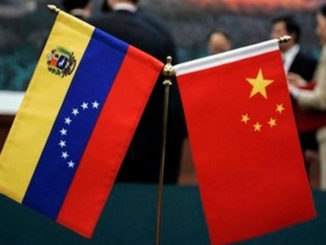
WASHINGTON – U.S. President Donald Trump announced Wednesday that he will ban transsexuals from serving in the Armed Forces, just over a year after Barack Obama’s administration to start accepting transgender recruits.
‘After consultation with my generals and military experts, please be advised that the the U.S. Government will not accept or allow transgender individuals to serve in any capacity in the U.S. Army,’ Donald Trump live-tweeted.
After consultation with my Generals and military experts, please be advised that the United States Government will not accept or allow……
— Donald J. Trump (@realDonaldTrump) July 26, 2017
….Transgender individuals to serve in any capacity in the U.S. Military. Our military must be focused on decisive and overwhelming…..
— Donald J. Trump (@realDonaldTrump) July 26, 2017
….victory and cannot be burdened with the tremendous medical costs and disruption that transgender in the military would entail. Thank you
— Donald J. Trump (@realDonaldTrump) July 26, 2017
Trump’s justification to adopt such a measure, that several voices term it discriminatory, is that the military ‘must be focused on decisive and overwhelming victory and cannot be burdened with the tremendous medical costs and disruption that transgender people in the military would entail,’ he added.
Climate Change and the Catastrophe of Trumpism
Obama’s Defense Secretary, Ashton Carter, in late June 2016, lifted a ban on transgender people joining the military.

“We speak about talented US people who are serving with distinction or aspiring to have the opportunity to serve. We can not allow the existence of barriers that are not related to qualifications and that prevent hiring and retaining those who can best fulfill the mission,” he said.
Subsequently, the Obama administration set July 1, 2017, as the date to recruit transgender people in the military.
However, Trump decided on June 30, a six-month adjournment, till January 1, 2018, in order to review the accession plans and provide input on the impact to the readiness and lethality of our forces, according to the Pentagon.
Such a delay did not affect the transgender people who are already serving and whose future is uncertain with the announcement made Wednesday by the U.S. president, who did not specify in his tweets when or how the ban will be applied.
According to a study cited by Carter in 2016, there would be about 2,500 transgender soldiers in military and 1,500 in reserve in the U.S. Army.
I served for 25 years and never served with a Trump … pathetic for 5-Deferment @realDonaldTrump to ban anyone with patriotism he lacked. pic.twitter.com/1NN31MXOF0
— Col. Morris Davis (@ColMorrisDavis) July 26, 2017
For The Atlantic magazine, Trump’s decision is likely to spark off a big response from both Democratic lawmakers and LGBT activists who have long pushed for full acceptance of these people.



